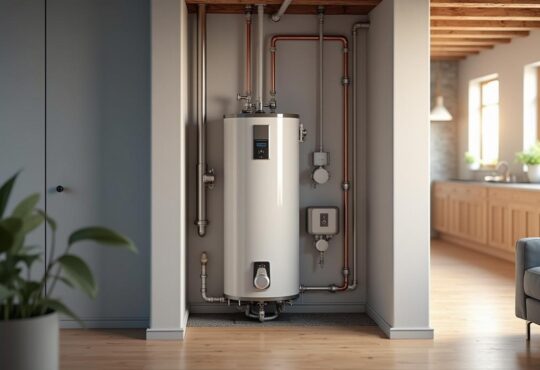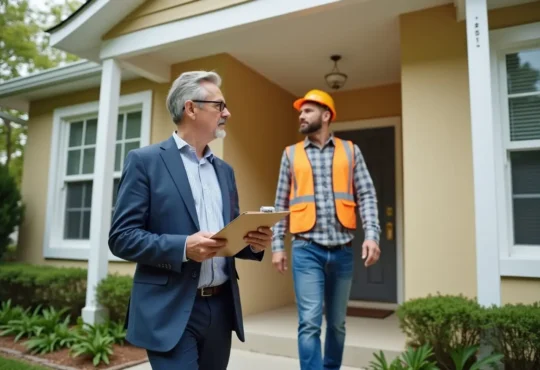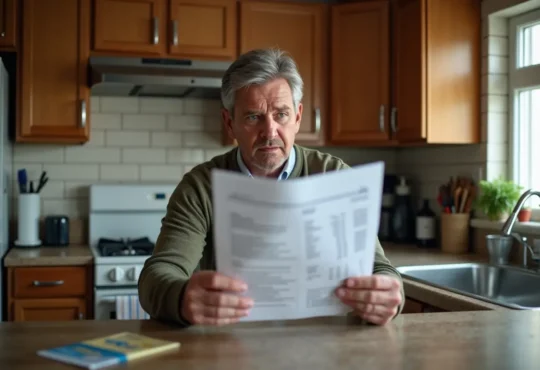
How to Get Plumbing License in Illinois
Anyone seeking to work with pipes and fixtures in Illinois needs a plumbing license. Earning that credential opens doors to reliable work, consistent income, and the satisfaction of helping families and businesses maintain clean water lines. Whether you’re a recent graduate or someone looking for a new professional path, going after this license can be a huge step toward long-term success. It involves technical training, state exams, and a thorough knowledge of local regulations, yet the payoff is well worth the effort.
In Illinois, organizations like the Illinois Department of Public Health take licensing seriously to maintain high standards. This approach protects public health and ensures that incoming professionals meet set guidelines for proper installation and repair techniques. You’ll find plenty of apprenticeship opportunities, training programs, and official resources designed to support you as you move forward. Of course, it all starts by learning the core requirements and assembling the right credentials.
Below, you’ll discover the primary steps that lead to becoming a licensed plumber here. You’ll see how local apprenticeship programs help nurture your technical abilities and why on-the-job training is so valuable. Before you know it, you’ll be signing up for the official plumber exam and putting your new skills to the test. Stick with these tried-and-true methods, and you can start building a stable plumbing career that matches your goals.
Contents
Key Requirements for a Plumbing License in Illinois
You’ll want to meet certain baseline prerequisites to qualify for licensing. Illinois typically requires that applicants have a good understanding of local plumbing codes, basic math, blueprint reading, and safety protocols. Most people get these fundamentals through accredited programs or related coursework.
Some aspiring plumbers start young by enrolling in vocational programs that specialize in mechanical or industrial trades. Others find their way through community colleges that offer targeted classes. Either path can equip you with the foundational skills you need before you tackle the official licensing process. Keep an eye on recommended textbooks, local guidelines, and updates from state authorities to stay ahead of the game.
Verifying Education and Age
One core rule is that you must be at least 16 years old to apply for an apprentice plumber license in Illinois. Beyond that, having a high school diploma or GED is a big plus, since many programs and employers will ask for it. If you’re worried about your educational background, consider taking refresher courses to boost your math and reading comprehension. This not only makes you more competitive but also helps you grasp technical plumbing concepts more quickly.
Hands-on experience forms the backbone of a plumber’s expertise. Illinois offers apprenticeship programs where you spend time learning from seasoned plumbers and developing real-world skills. These apprenticeships usually last four to five years, although the exact length can vary based on the program. During this time, you’ll learn how to clean drains, install fixtures, replace valves, and more.
You can find apprenticeship opportunities through local unions, trade associations, or independent plumbers looking to mentor new talent. Many people prefer union apprenticeships because of the organized structure and consistent pay scales. However, non-union routes also work if you find a reputable plumber willing to teach you the ropes. Pick the path that best matches your style and career goals.
Balancing Classroom Instruction and Field Training
Apprentices typically juggle on-the-job learning with formal classroom lessons. You might spend your weekdays removing clogs and installing pipes, then attend evening sessions to go over safety regulations. This dual approach shapes you into a well-rounded professional who can handle challenges in the real world. It also prepares you for future exams and licensing stages.
Preparing for the Exam
While practical experience is the heart of plumbing, passing the state exam is a major milestone that unlocks your official license. This test focuses on Illinois plumbing code, safety practices, and common service scenarios you’ll face in the field. You’ll be quizzed on topics like water distribution, drainage systems, and code compliance. It might sound overwhelming at first, but the right study strategy can make it manageable.
Exam-specific resources include study guides, practice tests, and commercial exam prep courses. The Illinois Department of Public Health also releases guidelines and bulletins that explain what the test will cover. Spend time reading these official documents, because they shed light on the exact areas you’ll need to master. Think of it like building a strong foundation before you step into a challenging but rewarding exam day.
Setting Up a Steady Study Routine
Designate specific blocks of time each week to go over codes, diagrams, and sample questions. Break sections into digestible chunks: for example, one day for ventilation and drainage, another day for water supply guidelines. Try simulating the test environment by timing yourself on practice questions. Consistency makes a huge difference because cramming alone rarely leads to success in a test as detailed as this one.
Gaining On-the-Job Skills and Experience
Books and exams teach you the theory, but real credentials come from practical know-how. Apprenticeship hours give you this vital field experience. You witness how pipes run through walls, how fixtures connect, and what can go wrong if things aren’t done correctly. This type of learning sticks with you because you’ve experienced it firsthand.
Working under a licensed plumber allows you to explore advanced tasks as well. For instance, you might start by shadowing someone who is installing a complex system in a large building. You’ll notice how extra care is taken in planning layouts, handling specialized materials, and adhering to safety codes. These real-life lessons teach things that books alone can’t convey.
Fitting in With the Team
Most plumbing jobs aren’t solo affairs. You’ll often work with contractors, electricians, and other tradespeople to finish a project. Making a good impression on the crew goes a long way toward building your reputation. Show up on time, pay attention to detail, and respect the job site. When people see you as reliable and easy to work with, they’ll often recommend you for more advanced opportunities down the line.
Moving Forward in Your Plumbing Career
Once you pass the exam and secure your official license, your journey is far from over. Illinois might require renewal every few years, and some states enforce specific continuing education credits to keep your license current. You’ll want to stay on top of any updates to the Illinois plumbing code, as well as any shifts in state policy or new technology in the field.
A plumbing career today involves more than snake augers and pipe wrenches. Modern systems require familiarity with energy-efficient technologies, water conservation, and innovative devices that track and manage usage. Keep an eye out for training sessions offered by local associations, trade schools, or unions. These can sharpen your skills and introduce you to novel tools that cut down on labor time.
Many plumbers branch out into their own businesses once they have enough experience. If that’s your goal, learn the basics of entrepreneurship, customer service, and financial management. Clients often return to plumbers who are transparent, professional, and timely. Building your reputation will propel your independent venture forward. It also helps to network with other construction professionals, since references and repeat business form the backbone of consistent income.
Sustaining Professional Growth
Don’t hesitate to embrace ongoing learning. Technology, environmental standards, and customer expectations continually evolve. Keeping up to date positions you as someone customers trust with their most pressing plumbing issues. Arm yourself with knowledge from reputable trade journals, local conferences, or continuing education classes. This ensures you maintain a solid edge in a competitive field.
On top of that, look for mentors or become a mentor yourself. Guiding fresh apprentices can sharpen your own expertise and give you a renewed perspective on familiar tasks. Teaching others often reveals insights you might not have noticed otherwise. It’s a rewarding cycle that benefits apprentices and veterans alike.
Upgrade your license over time if you want to tackle specialized fields or land bigger contracts. Some licensed plumbers pivot into design roles, consulting, or inspection services. By adding these skill sets, you can branch out and grow your income opportunities. Aim to be curious and flexible at every stage of your career.
Staying professional and dedicated to quality ultimately wins the trust of customers, cities, and state agencies. Whenever you complete a successful project whether it’s unclogging a stubborn drain or installing a full system in a new building take pride in a job well done. That commitment to detail and thoroughness underscores why the plumbing industry respects those who hold the license.
With consistent effort and a willingness to keep learning, you can thrive in Illinois’s dynamic plumbing environment. Before long, you’ll be the experienced hand training fresh apprentices, passing on vital knowledge, and shaping the next generation of skilled tradespeople. It might not happen overnight, but each call you take and each tricky fix you solve will help you evolve into a reputable and highly sought-after plumber.





 Hi I'm Joe.
Hi I'm Joe. 